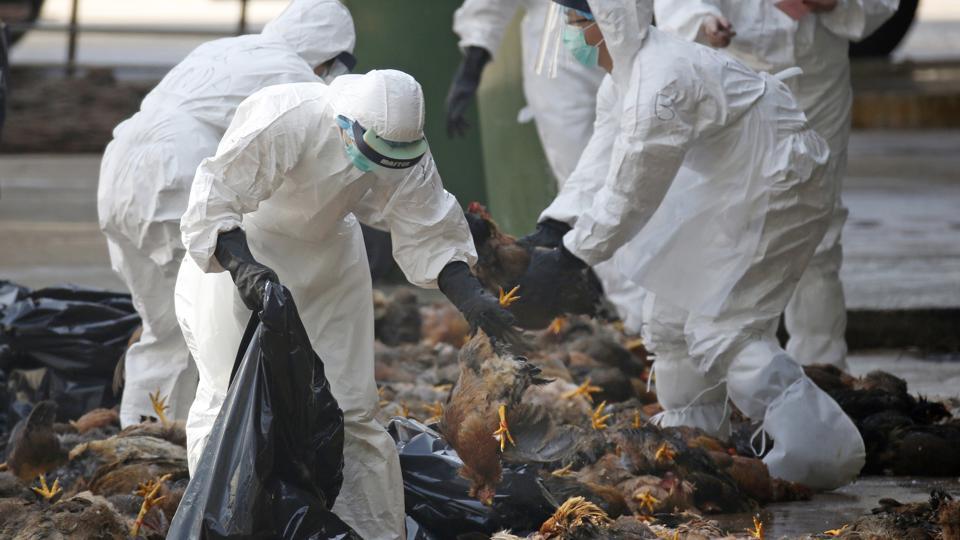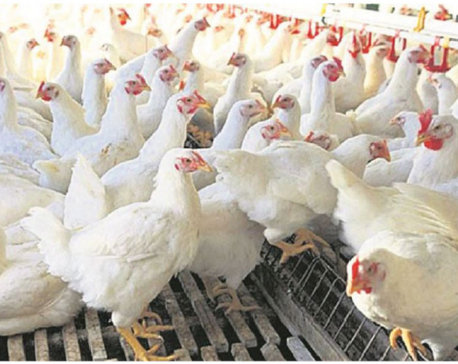
OR
Editorial
Take Avian Influenza Seriously
Published On: February 8, 2023 07:50 AM NPT By: Republica | @RepublicaNepal

The recent outbreak of Bird Flu, also known as Avian Influenza (H5N1) in three places in the Kathmandu Valley serves as a wake-up call for the government, poultry farmers and the general public to take this threat seriously. With the confirmation of the virus from a commercial poultry farm in Tarakeshwor Municipality in addition to Ramkot in Kathmandu and Khumaltar in Lalitpur, the need for increased vigilance and preventive measures has become more pressing. In fact, this is not the first time that Tarakeshwor area has reported a bird flu outbreak. In less than a month, the area has reported the disease for the second time, showing the potential for its spread and the need for quick action to contain it. The consequences of a widespread bird flu epidemic are far-reaching and can be devastating, not just for the poultry industry, but also for human health and the economy as a whole.
This avian influenza is a serious threat due to several reasons. Some strains of bird flu can infect humans, leading to serious illness and even death. According to experts, zoonotic transmission of this flu is of particular concern, as it can lead to a potential pandemic. Additionally, the virus can be easily transmitted from birds to humans and from one flock to another, making it difficult to control. The lack of effective treatments for bird flu in birds and the difficulty in controlling its spread can aggravate the situation. As our own experience in the past suggests, the bird flu can have a significant impact on the poultry industry, leading to culling of infected flocks and a drop in production. This can ultimately affect the wider economy, as the poultry industry is one of the major contributors to our national economy. Therefore, it is high time the government took this issue seriously and took a prompt and effective action to prevent its spread and minimize its impact.
The Department of Livestock Services, under the Ministry of Agriculture, along with other relevant government bodies should take a lead role to contain further spread of the disease. The relevant government bodies must take strong measures without further delay to prevent the spread of the bird flu and protect the ordinary public from the disease. This may involve both the short-term and long-term measures. While the implementation of stricter biosecurity measures is urgently necessary, it is equally important on the part of the government bodies concerned to encourage farmers to vaccinate their flocks and educate the public on the dangers of the disease and ways to prevent it. The onus to contain the spread of this virus lies also on poultry farmers. They must play their part in preventing the spread of bird flu by adopting biosecurity measures such as separating their flocks from wild birds, disinfecting their farms regularly, and avoiding the transportation of birds from infected areas. The farmers must be mindful of the signs and symptoms of the disease and seek veterinary help promptly if they suspect an outbreak.
Needless to say, consumers have an equally important role to play in preventing the spread of bird flu. They must only consume properly cooked poultry and eggs and avoid consuming raw or undercooked poultry products. They should also wash their hands regularly, especially after handling raw poultry, to prevent the spread of the virus. In view of its adverse impacts both on the human health and the country’s economy, the outbreak of bird flu in the Kathmandu Valley serves as a reminder of the need to take this threat seriously. The government, poultry farmers, and the general public must work together to prevent the spread of the disease and protect the public from its disastrous consequences. The time to act is now, and the cost of inaction could be huge.
You May Like This

Bird flu kills one for the first time in Nepal
KATHMANDU, May 2: A 21 year old was killed by bird flu – the first to succumb to the H5N1... Read More...

Bird flu detected in Kathmandu again
KATHMANDU, May 27: Bird flu has been detected at three places in Kathmandu again, according to the Department of Livestock... Read More...

Infrastructure in Valley inaccessible to differently-abled
KATHMANDU, Dec13: Public buildings and other infrastructure built in the Kathmandu Valley are least accessible to differently-abled people, according to... Read More...











Just In
- Nepal at high risk of Chandipura virus
- Japanese envoy calls on Minister Bhattarai, discusses further enhancing exchange through education between Japan and Nepal
- Heavy rainfall likely in Bagmati and Sudurpaschim provinces
- Bangladesh protest leaders taken from hospital by police
- Challenges Confronting the New Coalition
- NRB introduces cautiously flexible measures to address ongoing slowdown in various economic sectors
- Forced Covid-19 cremations: is it too late for redemption?
- NRB to provide collateral-free loans to foreign employment seekers







Leave A Comment